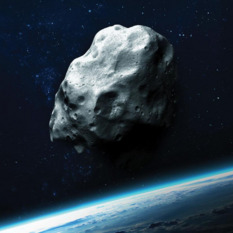Apply for a Shoemaker NEO Grant from the Planetary Society

Richard Fienberg Running Hare Observatory
This post is based on a Planetary Society press release:
The Planetary Society announces a new call for proposals for its Gene Shoemaker Near Earth Object (NEO) grant program. Now in their 22nd year, Shoemaker grants fund amateur observers, underfunded professional observers, and observers in developing countries who make vital contributions to NEO research. Proposals are due 30 July 2019.
 Damaging asteroids don’t hit Earth often, but there is a 100% probability that one will hit in the future — unless we do something about it. The Planetary Society, through its Shoemaker NEO grants and other programs, is committed to helping prevent this preventable natural disaster.
Damaging asteroids don’t hit Earth often, but there is a 100% probability that one will hit in the future — unless we do something about it. The Planetary Society, through its Shoemaker NEO grants and other programs, is committed to helping prevent this preventable natural disaster.
Since its founding in 1980, The Planetary Society has actively supported a number of NEO research efforts. In 1997, they initiated the Shoemaker NEO grant program in honor of pioneering planetary geologist Gene Shoemaker, who did so much to help us understand the process of planetary impact cratering and the nature of the NEO population. The 22-year program has given 56 awards to 41 observers in 18 countries on 6 continents, totaling more than $382,000.
Winning Shoemaker NEO grant proposers typically have existing telescope facilities and prior observing experience but need additional funding to take their work to the next level. The program originally focused on helping to provide observers with larger telescopes and more sensitive CCD cameras to broaden sky survey coverage and increase the rate of NEO discovery. Over time, large ground- and space-based survey programs have made great leaps forward in finding and characterizing very faint asteroids.
Thus, the Shoemaker NEO grant program has shifted its primary emphasis from discovery to physical studies and astrometric follow-up. The need now is for telescopes with apertures (and effective apertures) larger than 60 centimeters (24 inches) at sites with dark, clear skies. Such facilities allow for observation of NEOs fainter than magnitude V = 20.5-21, the region where professional surveys are discovering many new small objects. Observers with "day jobs" can observe more efficiently by automating their facilities.
Applications for the current round of Shoemaker NEO grants are due 30 July 2019. Grant sizes are typically $5,000 to $12,000. Priority will be given to applicants who seek to improve or automate large-telescope facilities. Priority will also be given to programs that can leverage Shoemaker NEO grant funds with matching contributions from other sources.
The Planetary Society encourages applications from amateur and under-funded professional observers anywhere in the world. Proposers are encouraged to read about past winners and to browse project updates highlighting their work.

